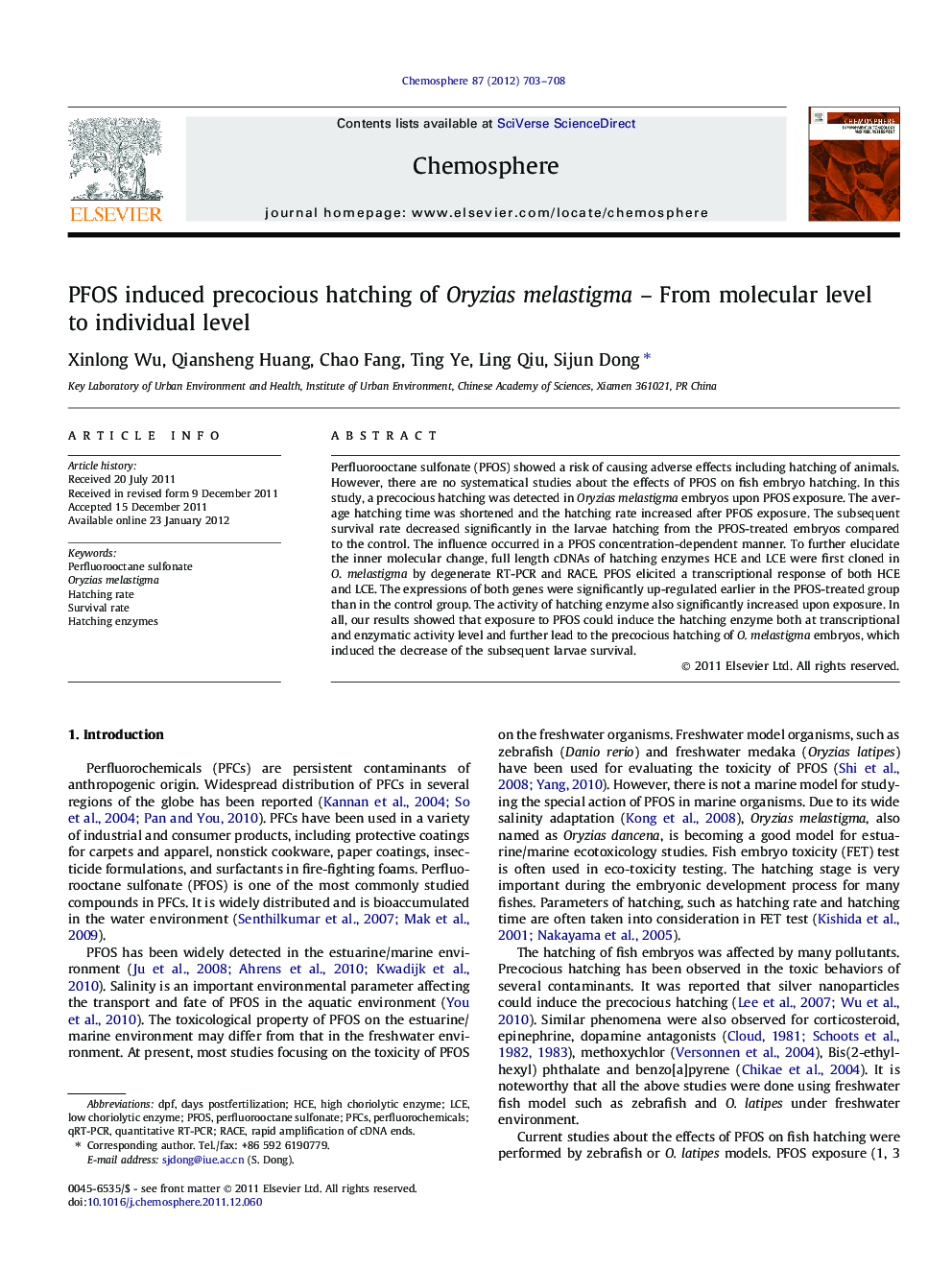| Article ID | Journal | Published Year | Pages | File Type |
|---|---|---|---|---|
| 4409840 | Chemosphere | 2012 | 6 Pages |
Perfluorooctane sulfonate (PFOS) showed a risk of causing adverse effects including hatching of animals. However, there are no systematical studies about the effects of PFOS on fish embryo hatching. In this study, a precocious hatching was detected in Oryzias melastigma embryos upon PFOS exposure. The average hatching time was shortened and the hatching rate increased after PFOS exposure. The subsequent survival rate decreased significantly in the larvae hatching from the PFOS-treated embryos compared to the control. The influence occurred in a PFOS concentration-dependent manner. To further elucidate the inner molecular change, full length cDNAs of hatching enzymes HCE and LCE were first cloned in O. melastigma by degenerate RT-PCR and RACE. PFOS elicited a transcriptional response of both HCE and LCE. The expressions of both genes were significantly up-regulated earlier in the PFOS-treated group than in the control group. The activity of hatching enzyme also significantly increased upon exposure. In all, our results showed that exposure to PFOS could induce the hatching enzyme both at transcriptional and enzymatic activity level and further lead to the precocious hatching of O. melastigma embryos, which induced the decrease of the subsequent larvae survival.
► The embryos of Oryzias melastigma as toxicity test model for PFOS. ► PFOS induced a precocious hatching and subsequent decrease of larvae survival rate. ► Full length cDNAs of hatching enzymes HCE and LCE were first cloned. ► PFOS induce the hatching enzyme both at transcriptional and enzymatic activity level.
